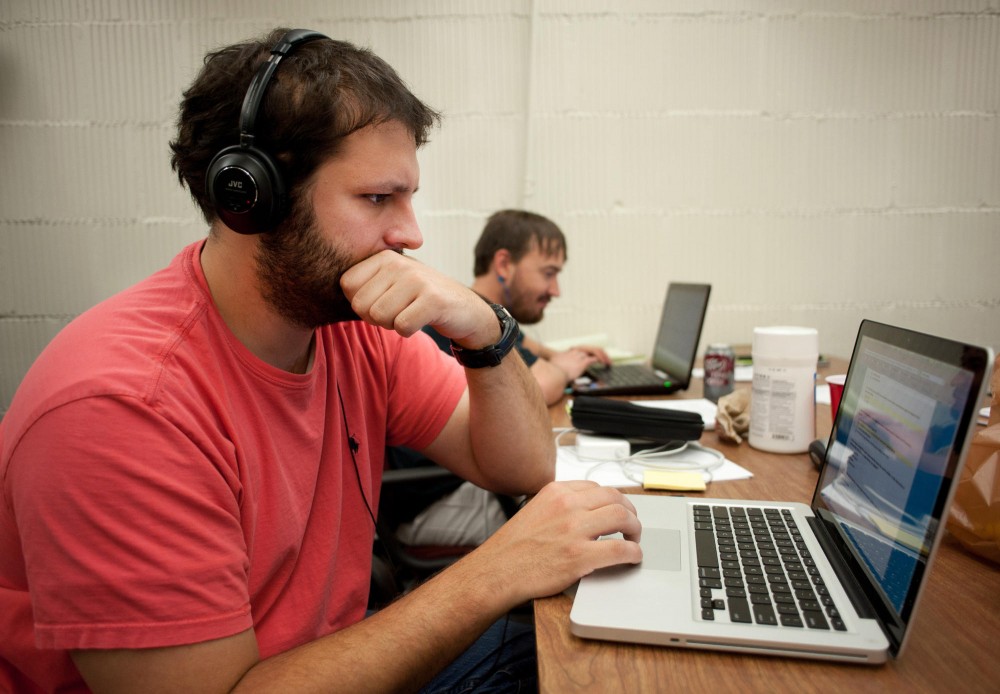Jordan Hayes started his first year at the University of Minnesota this fall, but he doesnâÄôt feel like he fully fits into the freshman mold.
The 21-year-old returned in February from a 10-month deployment in Balad, Iraq . Hayes is one of more than 800 student veterans at the University, and that number could rise in 2012.
After eight years of war, President Barack Obama announced Friday that all American troops in Iraq will leave the country by the end of the year.
It was welcome news to Hayes.
âÄúAt some point, you have to give up,âÄù Hayes said. âÄúItâÄôs been eight years and weâÄôve been in the same spot.âÄù
A statement from Lt. Col. Kevin Olson of the Minnesota National Guard said the affect on Minnesota troops in the National Guard is still uncertain.
âÄúMore than 2,600 soldiers âĦ stationed in Kuwait are expected to remain until May 2012, performing their important duties of providing security for bases in Kuwait and facilitating the drawdown of US military forces and equipment from Iraq,âÄù according to the statement.
According to the Minnesota National Guard, only 80 Minnesotans are currently deployed in Iraq, while 2,600 are based in Kuwait. Kuwait is used as a base for operations in Iraq.
Veterans in higher education across Minnesota have more than doubled since 2005 to roughly 15,000 in March 2011, said Dave Bellefeuille, supervisor of the Higher Education Veterans Program.
More than 800 veterans attend the University, according Carin Anderson a manager in the UniversityâÄôs Veterans Certification Office.
ItâÄôs been difficult for Hayes to connect with freshmen, most of whom âÄúdonâÄôt know anything thatâÄôs happening in the real world,âÄù he said.
Being around other veterans in the Student Veteran AssociationâÄôs office in Johnston Hall helps, Hayes said. âÄúItâÄôs a lot easier to connect on life.âÄù
SVA President Kimberly Wooster said she expects FridayâÄôs withdrawal announcement will increase the number of veterans on campus.
Wooster, now 33, quit school when she was 21 years old to join the Navy. After 8 years with sporadic missions overseas, her last in the Persian Gulf, she started at the University in 2008.
Wooster said veteransâÄô experiences at the University are different from those of other students. Her transition back to an academic setting was full of surprises and challenges.
âÄúI donâÄôt remember wireless [Internet] at all,âÄù Wooster said with a laugh.
But the biggest difficulty, she said, was learning to multitask.
âÄúBeing deployed is easy,âÄù Wooster said. âÄúYou have one focus.âÄù
On top of the usual college coursework, Wooster has to juggle taking care of her 4-year-old daughter, spending time with her husband and doing her job.
An added difficulty is transportation. Most veteran students donâÄôt live on campus, Wooster said, and only married veterans can apply for married student housing.
Wooster commutes from Farmington, Minn. âÄî a one- to two-hour commute, depending on traffic. She spends long hours in SVAâÄôs room.
âÄúItâÄôs a place where you automatically know you wonâÄôt have a hard time fitting in,âÄù she said.
Students go in and out of the room, some studying quietly, some chatting and others playing video games in between classes.
âÄúItâÄôs hard to step into where you were at before you left,âÄù Hayes said.
âÄúThe military was my family,âÄù Wooster said. But she has found a way to move on from the experience at the University. When it comes to memories of her deployment, Wooster said that âÄúeventually you put it in its own place.âÄù
-The Associated Press contributed to this report


